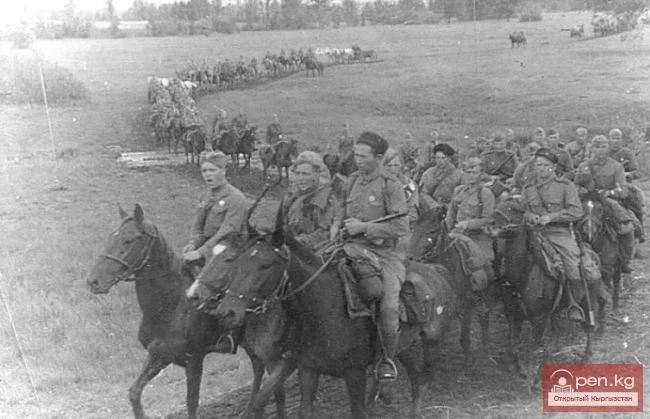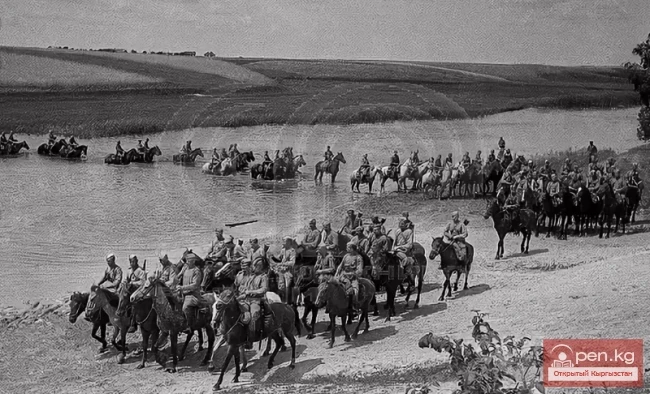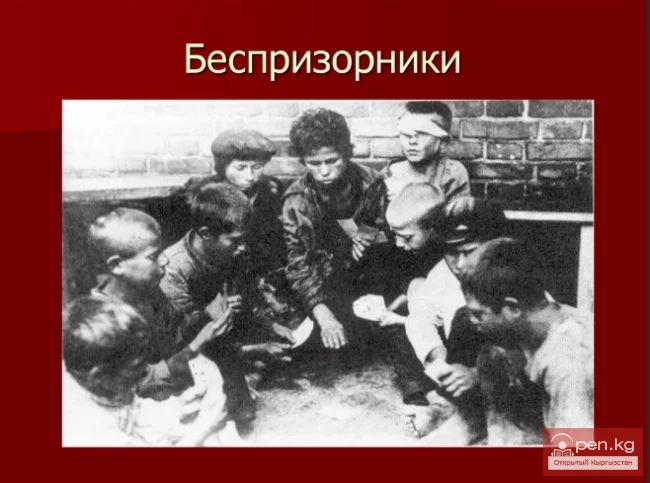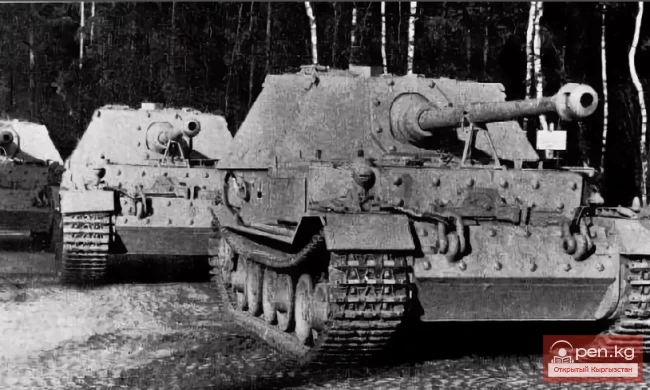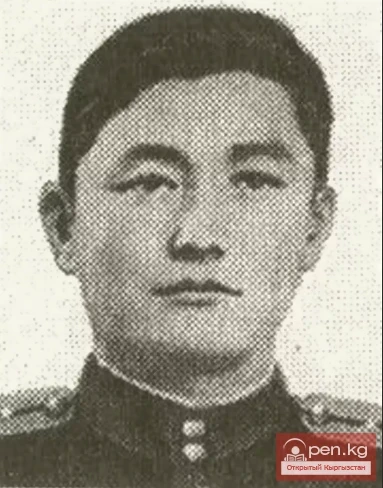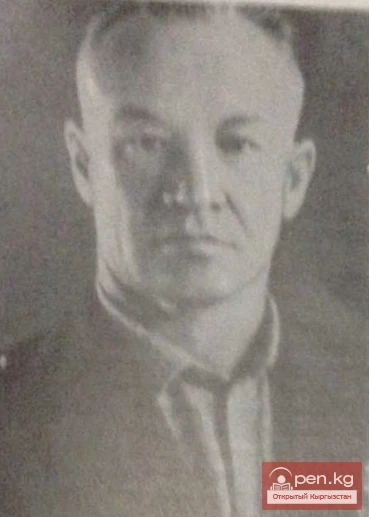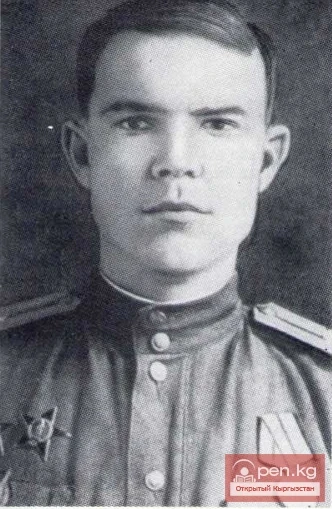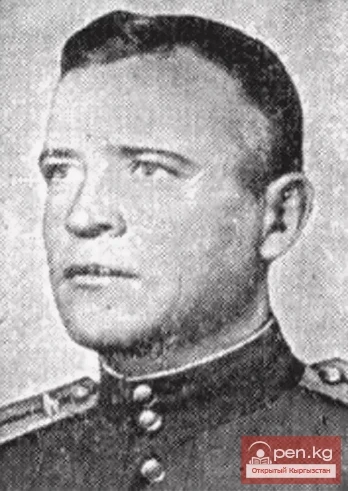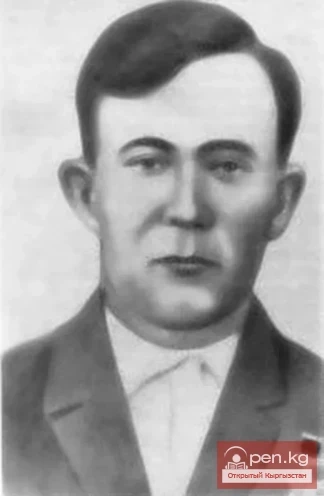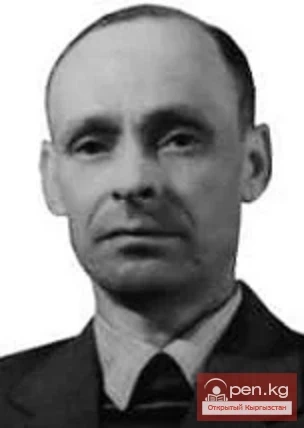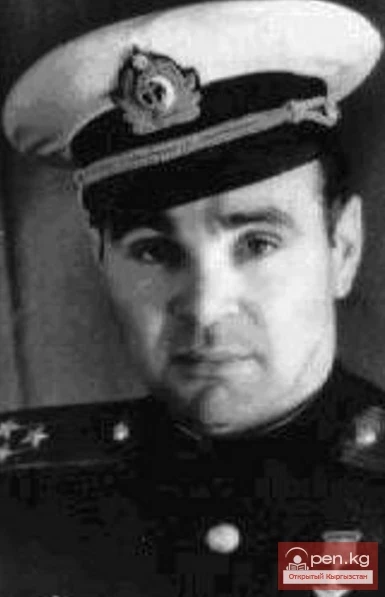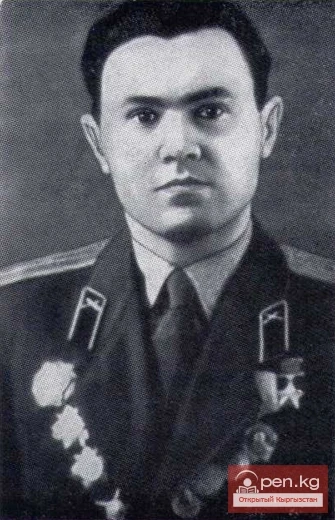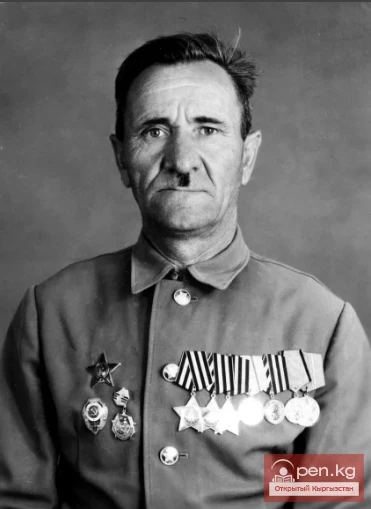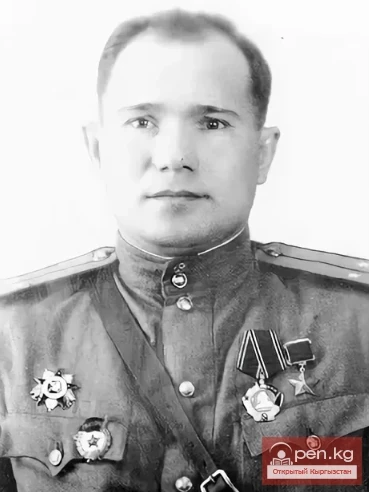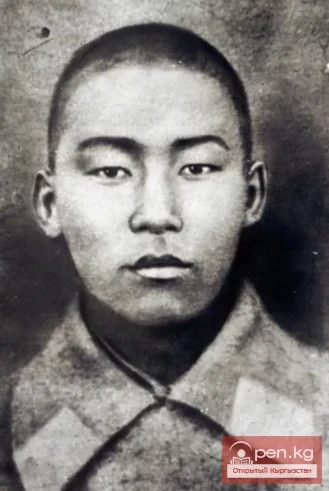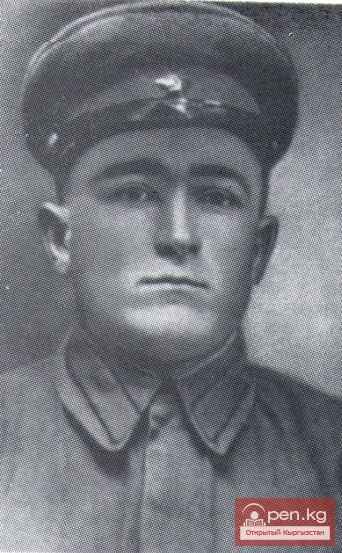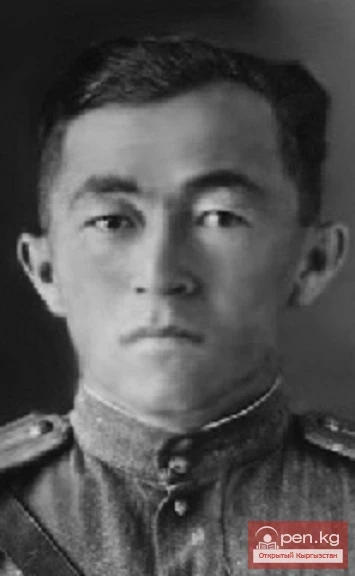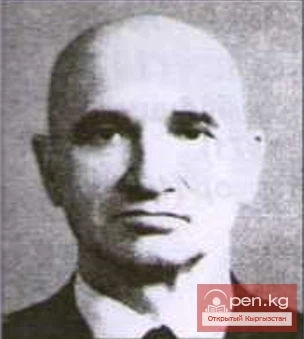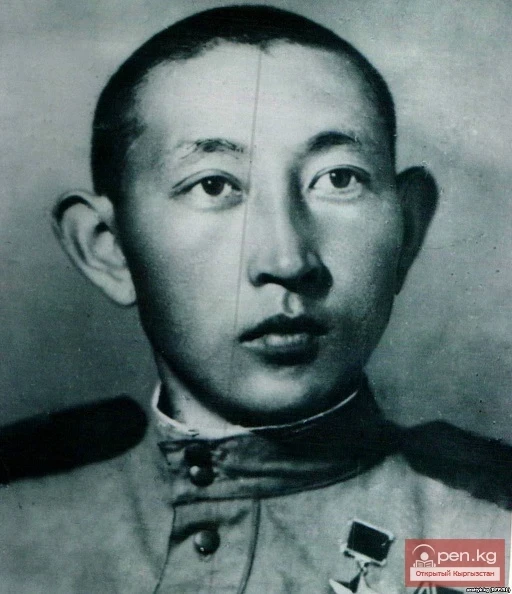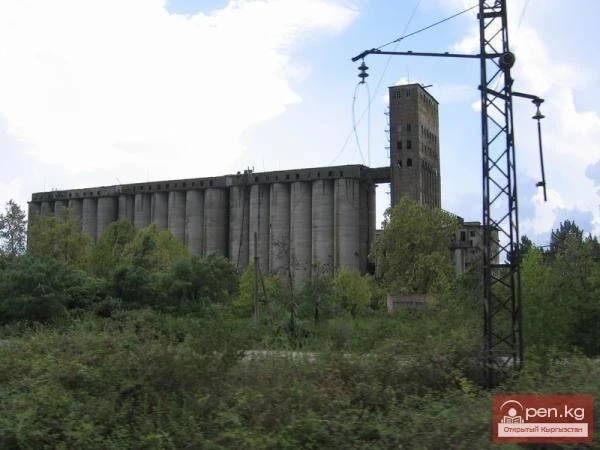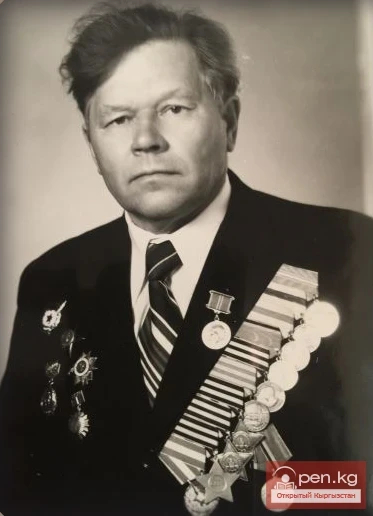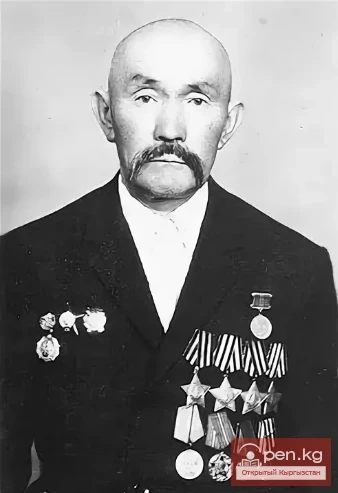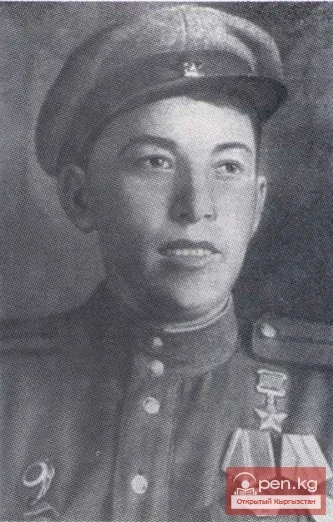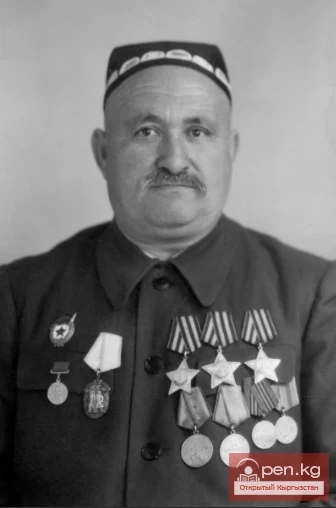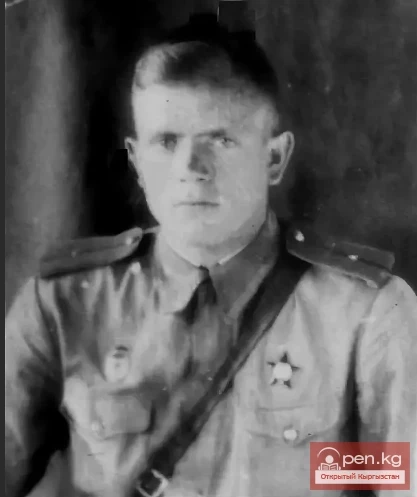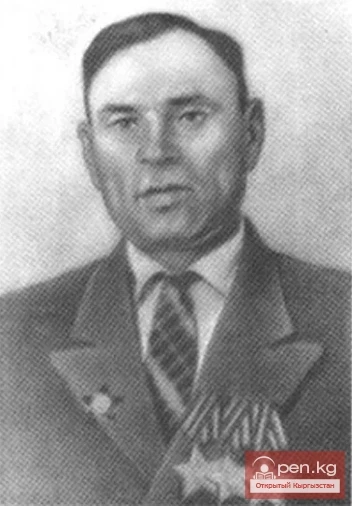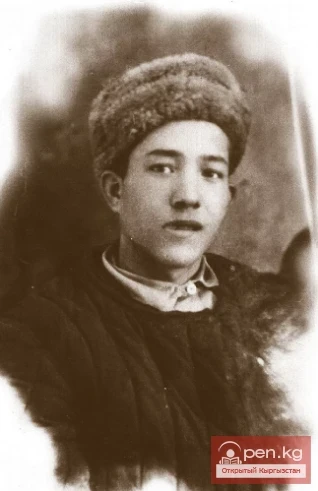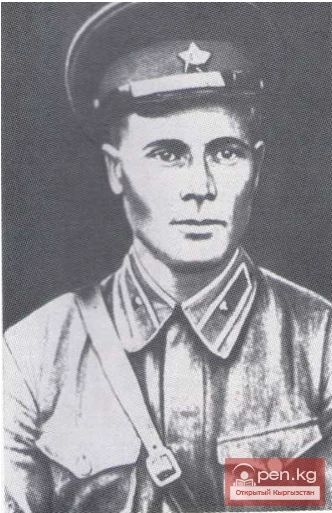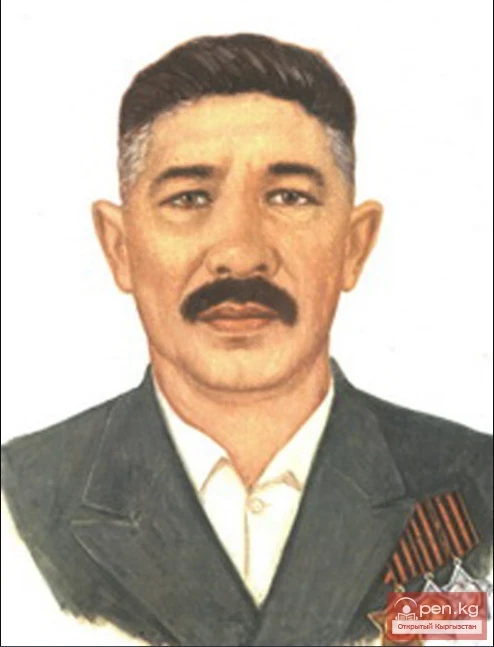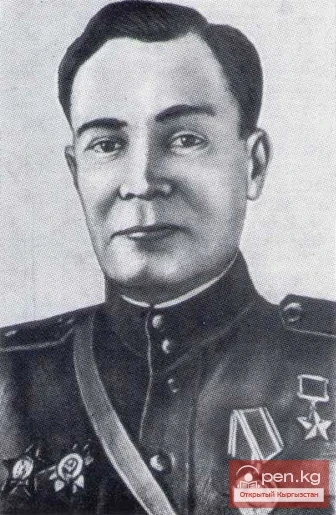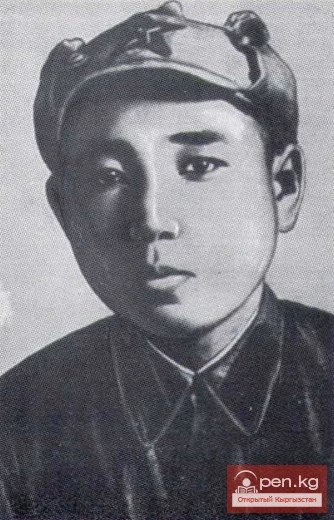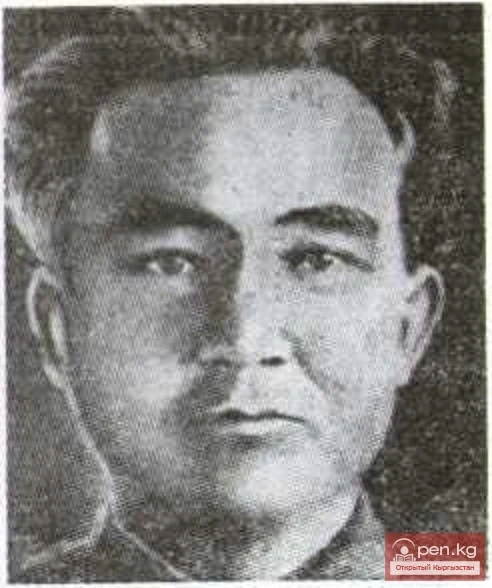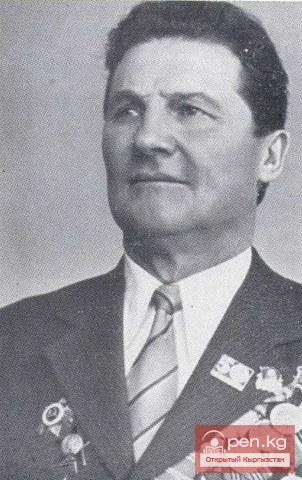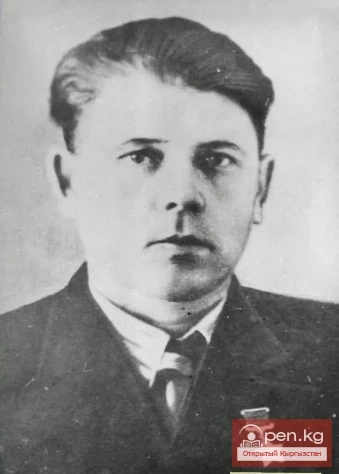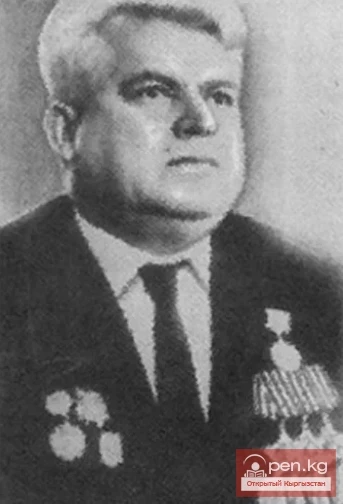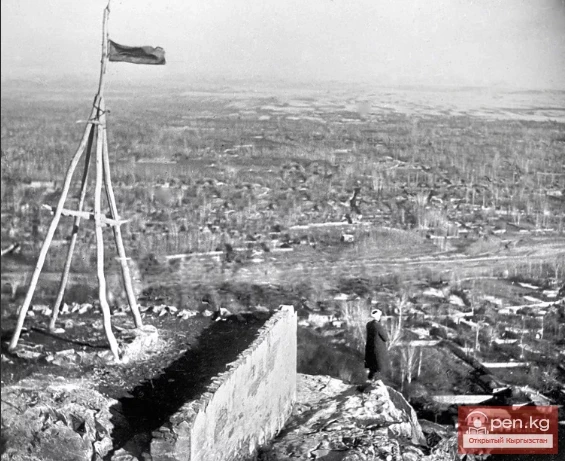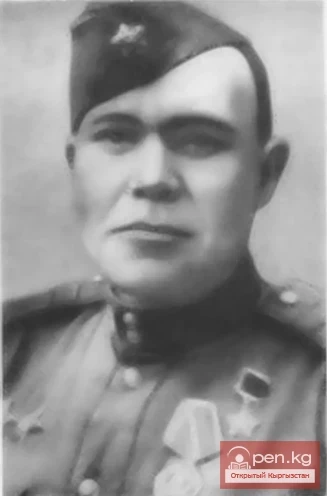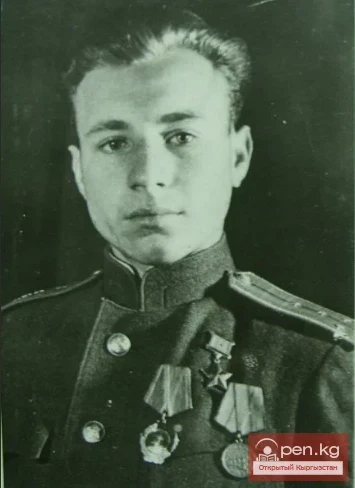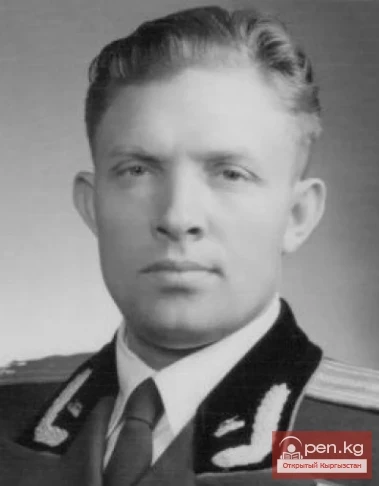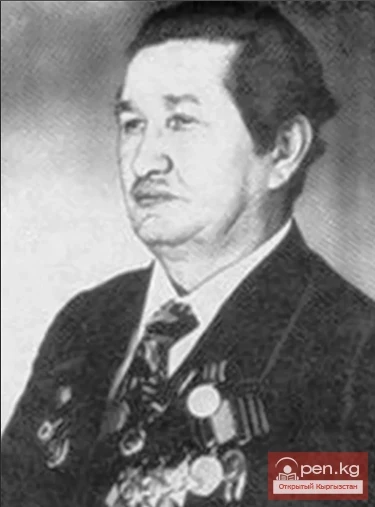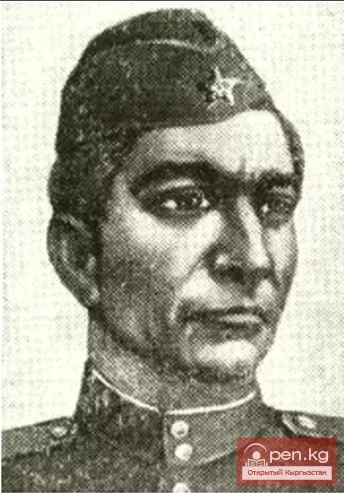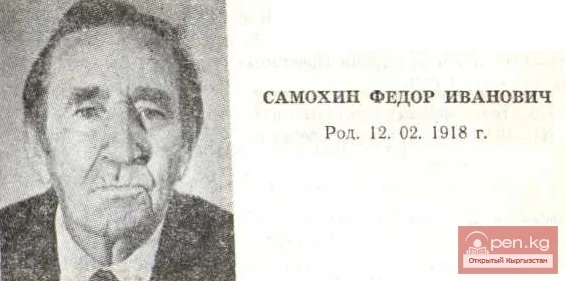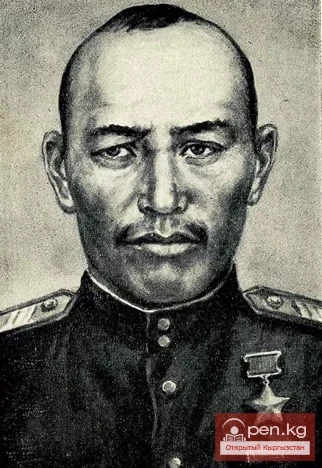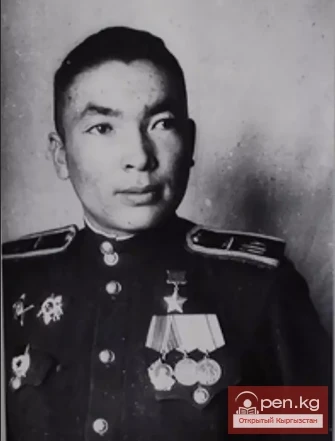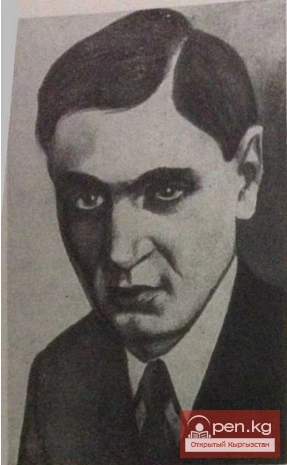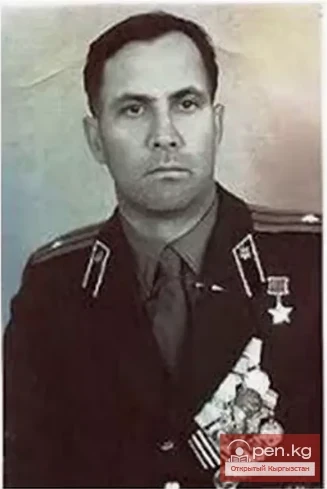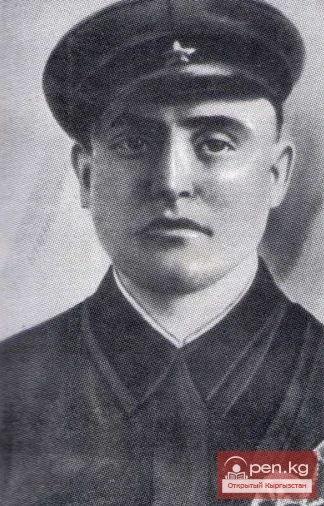
Hero of the Soviet Union Tikhonov Grigory Matveevich
Grigory Matveevich Tikhonov was born in 1912 in the village of Semyonovka, Ruzaevsky District, Kokshetau Region, in a poor peasant family. Russian. Member of the Communist Party of the Soviet Union. He was drafted into the Soviet Army in 1940 from the city of Frunze, Kyrgyz SSR. Guard senior lieutenant. Commander of a saber squadron of a cavalry regiment. Participant in the war with the White Finns.
He fought on the fronts of the Great Patriotic War from its very first day. In battles against the Nazi occupiers, he proved himself to be a brave and courageous warrior.
On January 15, 1944, for his displayed heroism and courage, and for his skillful leadership of the squadron in difficult and crucial battles on the approaches to the Dnieper and during its crossing, Grigory Matveevich Tikhonov was awarded the title of Hero of the Soviet Union. For his combat merits during the war, he was awarded the Orders of Alexander Nevsky and the Red Star. He died on February 13, 1944, in battle for the city of Mozyr.
THE CAVALRY CHARGED INTO ATTACK...
At a march pace, the squadron moves along a dusty country road, scarred by the tracks of enemy tanks retreating to Gomel under the powerful pressure of the advancing 61st Army. The grass along the road, scorched and yellowed from the summer, is lightly dusted with frost from the first September cold snaps.
The morning sun warms, playing with cheerful glints on the harnesses of the horses and on the drawn faces of the fighters. The monotonous, lulling sound of hooves fills the air.
“The guys are tired, worn out. It’s been days of fighting, and what fights! — thought Lieutenant Tikhonov warmly, paternalistically, as he surveyed the exhausted faces of his squadron. — My boys are tough! I know, as soon as the order comes — they will rush under fire without hesitation and fight selflessly, skillfully, without sparing themselves... They are tired, of course, but we can’t afford to rest right now. We must advance, not give the enemy a breather, only forward, forward...”
Early in the morning, after a short rest, the 3rd saber squadron of the 62nd Guards Cavalry Regiment set out for the village of Ivashkovo, occupied by the fascists. Again, as yesterday when the squadron liberated the collective farm "May 1," a battle awaited them. How it would unfold for the cavalrymen? Nothing can be predicted or foreseen in advance. The enemy is still strong and is defending stubbornly, fiercely, with the desperation of a doomed predator, often launching counterattacks supported by tanks and self-propelled guns. A frontal assault alone will not always prevail against the enemy; you will only lose men.
A flanking maneuver is needed; after Stalingrad, the Germans began to panic at the thought of encirclement. In some battles, time is counted in seconds — that’s how long the commander has to make that one, most correct decision that will lead the fighters to victory.
The battle for the collective farm "May 1" was fierce and intense, turned by the enemy into a stronghold. Trenches, barbed wire barriers surrounding the dugouts with machine gun nests, spoke of the enemy's intention to stop the advance of Soviet forces. The Germans' fire was dense and furious, but this did not intimidate the cavalrymen. Led into the attack by their commander, they crashed into the enemy like a powerful avalanche, and, overcoming the German defense line on the run, burst into the village. It seemed that the outcome of the battle was predetermined. The fascists, unable to withstand the cavalry's onslaught, fled, and all that remained was to pursue the disorganized retreating enemy.
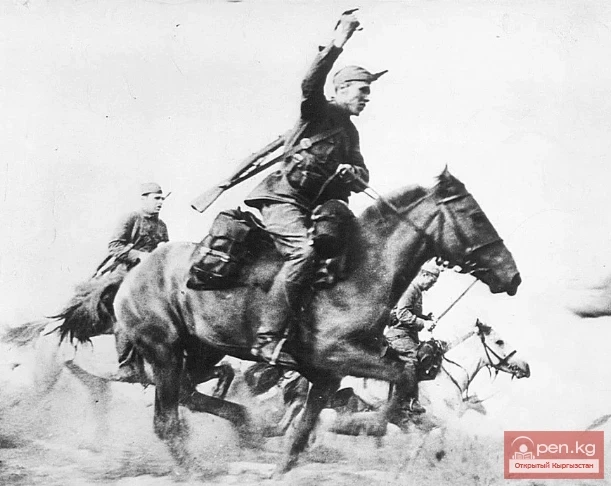
But the further advance of the squadron suddenly became impossible: deadly fire from deep within the village, intensified by mortar shelling, indicated that the German command had managed to halt the panic-stricken retreat and organized a defense at a new line. Under the cover of concentrated fire, the Germans launched a counterattack, making a desperate attempt to push back those who had entered the village. In these critical moments of battle, Lieutenant Tikhonov ordered two platoons of the squadron to perform a flanking maneuver, to go behind enemy lines and suppress their firing points.
All three platoons struck simultaneously. The Germans, caught off guard by this turn of events, floundered in the fire ring. In that battle on the streets of the collective farm "May 1," over a hundred enemy soldiers and officers met their inglorious end. Dozens of Germans, seeing that resistance was futile, surrendered, and only a few managed to escape in several vehicles. Tikhonov's cavalrymen captured three radio stations, a truck with ammunition, weapons, and other trophies.
Again and again, mentally reviewing all the nuances and twists of the recent battle, Grigory Matveevich thought with satisfaction that he had acted correctly, that he had taken justified risks, as the situation required. No matter what they say, cavalry is strong in its mobility, its ability to make a swift maneuver. Soviet cavalrymen showed the world in this war that all talk about the cavalry as a branch of the military supposedly being outdated is clearly premature. Cavalry remained irreplaceable in raids behind enemy lines, in offensive operations when it was necessary to develop initial success, to catch up with and destroy enemy detachments that had broken away from the main forces.
In these continuous battles on the approaches to the Dnieper, the squadron faced, as a rule, superior enemy forces. This was also the case near the village of Klachkov, where, according to intelligence, a Hungarian infantry regiment, numbering about a thousand soldiers and officers, was holding the defense. Lieutenant Tikhonov's cavalrymen were to cross the Snov River, attack the enemy in the village of Klachkov, and, having secured themselves on the western bank, ensure the crossing of the main forces of the 62nd Cavalry Regiment. Realizing that the enemy's defense was most fortified in the northern part of the village, where its main firing positions were concentrated, Grigory Matveevich decided to cross the Snov south of Klachkov and strike at the southeastern outskirts of the village — from this side, it seemed, the enemy least expected an attack.
They managed to secretly cross the Snov and concentrate for an attack at the predetermined line. This largely ensured the success of further actions. The Soviet cavalry's assault was so unexpected and fierce that the defenders could not withstand the blow and retreated in disarray deeper into the village, leaving over forty dead soldiers and officers in the trenches and on the retreat path. Some time passed before the Hungarian infantry, supported by three tanks and two armored vehicles, launched a counterattack. Lieutenant Tikhonov ordered the fighters to take up defensive positions and hold on until the main forces of the regiment arrived, which at that hour were crossing the Snov unhindered at the place where the 3rd saber squadron had previously crossed.
The battle promised to be fierce. The enemy unleashed the full force of its fire on the Soviet warriors, but the guardsmen did not falter. With accurate shots, they cut off the infantry from the tanks and destroyed the advancing troops. The anti-tank gunners managed to knock out one tank and one armored vehicle. The enemy's attack faltered. For some time, enemy soldiers, urged on by their officers, continued to move forward, suffering significant losses, then stopped and began to retreat uncontrollably.
Grigory Matveevich understood that the enemy's failure had only temporarily demoralized them; regrouping their forces, they would surely launch another counterattack. The lieutenant transmitted an order to be on alert and prepare to repel a new enemy attack. But events took a different turn. Reinforcements arrived for Tikhonov's cavalrymen, and soon the entire 62nd Guards Cavalry Regiment entered the battle, driving the enemy out of the village of Klachkov and beginning the pursuit of the retreating forces. This was a victory...
Frontline roads... Grigory Matveevich had traveled many of them over three years of the Great Patriotic War. And who knows how many more he will have to traverse on these endless roads — dusty in the summer heat, frozen under an icy crust in the winter chill, turning into a muddy mess under the relentless autumn rains. How many roads lie ahead for Lieutenant Tikhonov if an enemy bullet does not knock him from the saddle before his time?
It so happened that almost all of Grigory Matveevich's conscious life was connected with the army. He was twenty when he became a Red Army soldier. Behind him lay a difficult orphaned childhood. It was spent in the village of Semyonovka in Kokshetau Region, where Grisha was born into a poor peasant family. In the hungry year of 1921, Grigory's father and mother died, and the nine-year-old boy went out into the world. He was not allowed to die of hunger. In those hard years, when the Soviet country was healing the wounds inflicted by the civil war and devastation, thousands of young orphans wandered its roads, settling in the basements of cities. These kids, who had strayed from normal life, were called homeless children.
Communes and orphanages were created for them. One of these homes sheltered Grisha Tikhonov, replacing his parents and family.
In the army, the young warrior's abilities were fully revealed, and the command sent Red Army soldier Tikhonov to study at the Sverdlovsk Military School. After that, Grigory Matveevich served on the border, guarding the peaceful labor of Soviet people. In 1938, after being demobilized, he arrived in Kyrgyzstan, working at the Kain-Da station. But two years later, when the war with the White Finns began, the Motherland called him back to the army. At the front, Tikhonov joined the party. From the beginning of the Great Patriotic War, he served as a senior political instructor, then as commander of cavalry units. In the very first battles, Tikhonov's command talent emerged. For his skillful leadership of the troops entrusted to him, for his personal courage, bravery, and valor, Grigory Matveevich was awarded the Orders of the Red Star and Alexander Nevsky.
…The sun rose higher, its rays becoming more vertical, warming people and horses. The sky above was blue, clear, without a single cloud, with an extraordinary, sweet and tart scent, blending the smells of fading grasses and flowers, and it was surprisingly easy to breathe, while a free, cheerful breeze flowed towards the horsemen, tickling their rough, weathered faces. Bliss! It was as if there was no war. And here was the village of Ivashkovo. The white Ukrainian cottages looked particularly peaceful among the yellowing gardens. A beautiful village. But behind those white cottages lurked a treacherous and cruel enemy.
The area in front of the village was open, and the enemy unit occupying Ivashkovo met the advancing cavalrymen with dense, aimed fire. Then, tanks began to roll out from behind the cottages and gardens, forming into battle order, crawling heavily, their engines roaring, firing on the move. The squadron commander ordered them to dismount and take up defensive positions, preparing grenades and anti-tank rifles for battle. The tanks were approaching. “One, two, three, four...” — Tikhonov counted through his binoculars. He counted six "Tigers," and the seventh was a self-propelled gun "Ferdinand." Behind the tanks, gray figures of enemy infantry were running.
“It’s alright, we’ll hold out. We’ve endured worse...” — thought Grigory Matveevich, lowering his binoculars.
The battle was heating up. The guardsmen met the enemy tanks with accurate fire from anti-tank rifles and grenades, striking together with grenade launchers and machine guns at the enemy infantry, cutting them off from the tanks and pinning them to the ground. From the precise hits of the anti-tank gunners, the "Ferdinand" began to smoke and suddenly burst into flames, the "Tigers" seemed to hesitate, and then, returning fire, began to retreat. What seemed incredible at first glance was happening: the enemy, having a clear advantage in firepower and manpower, was retreating, unable to overcome the dismounted Soviet cavalrymen. It was evident that the morale of the fascist troops was low, and in this respect, they clearly lagged behind our cavalrymen. But it was precisely the moral superiority of the Soviet warriors, their steadfastness, their courage that ultimately determined the outcome of this battle. The enemy dared not attack again, and Lieutenant Tikhonov's cavalrymen, along with the other squadrons of the regiment that soon arrived, went on the offensive. They entered Ivashkovo as victors.
On September 25, 1943, the 3rd saber squadron, continuing to move in the vanguard of the 62nd Cavalry Regiment, reached the Dnieper. Along the gently sloping green bank, thickly overgrown with willows, the horsemen approached the waters of the Dnieper, dismounted, and watered their horses. Before them stretched the calm, greenish surface of the water for hundreds of meters. It was quiet and peaceful on the opposite side, occupied by the enemy, of this great Slavic river, celebrated by poets. The fighters gazed intently at the deceptive, wary silence of the right bank, on which they were to step as liberators of their native land in the coming days.
Anxious and joyful feelings stirred in their hearts.
In the riverside forest, south of the Red Gutta, they settled down to rest, waiting for the main forces of the regiment to arrive. The fighters first thought of their four-legged combat helpers: they unsaddled the horses, groomed them, treated their bruises and scratches, checked to see if the horseshoes had come loose during the march, fed them the remnants of oats, and then some treated their friends with a piece of sugar... Horses! You share all the hardships and deprivations of the campaign life with the cavalrymen; you serve faithfully and truthfully to your riders, disregarding all fears, flying with them like a hurricane into the rain of bullets, and dying silently, shielding the rider from the fatal piece of lead.
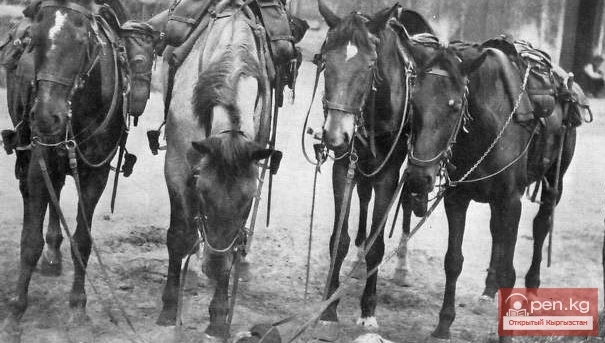
On September 28, the 62nd Cavalry Regiment received orders to cross the Dnieper and seize the village of Nivki on the western bank. Lieutenant Tikhonov's squadron was ordered to cross first. The preparation for this task was brief. They constructed half a dozen rafts from improvised materials and procured several fishing boats. Personally inspecting the area, Grigory Matveevich decided to cross the Dnieper northwest of the village of Domarki. Here the river curved and was just over half a kilometer wide. This distance was covered by the cavalrymen under heavy artillery, mortar, and machine-gun fire from the enemy in one hour and thirty minutes, and those one and a half hours were a hellish torment for each of them: they responded with rare, economical bursts to the torrent of enemy fire, desperately battling the capricious Dnieper current, paddling with all their might towards the too slowly approaching shore.
The enemy garrison defending Nivki could not withstand the hurricane attack of the cavalrymen and hastily retreated. The combat task assigned to the squadron by the regiment commander was accomplished. The sun sank below the horizon, and the cavalrymen continued their advance. In the twilight, they approached the village of Usokhi, deciding to attack under the cover of night, betting on surprise. This calculation paid off completely: caught off guard by the night attack, the fascists fled in panic. The next morning, Lieutenant Tikhonov's guardsmen found themselves in new positions beyond the outskirts of the village of Usokhi. The other squadrons of the 62nd Cavalry Regiment, which had crossed the Dnieper, secured themselves on the reclaimed bridgehead.
That day, Lieutenant Tikhonov again led his men in a bold cavalry charge. The guardsmen swiftly burst into the large village of Galki, fighting on its northeastern outskirts, still unaware that from the opposite side, the squadron of Lieutenant Smirnov of the neighboring 60th Guards Cavalry Regiment had also stormed into the village, sweeping away the enemy in its path. The enemy garrison, caught in a vise, was utterly defeated. Just on the combat account of Lieutenant Tikhonov's guardsmen — over fifty enemy soldiers and officers killed and a destroyed mortar battery.
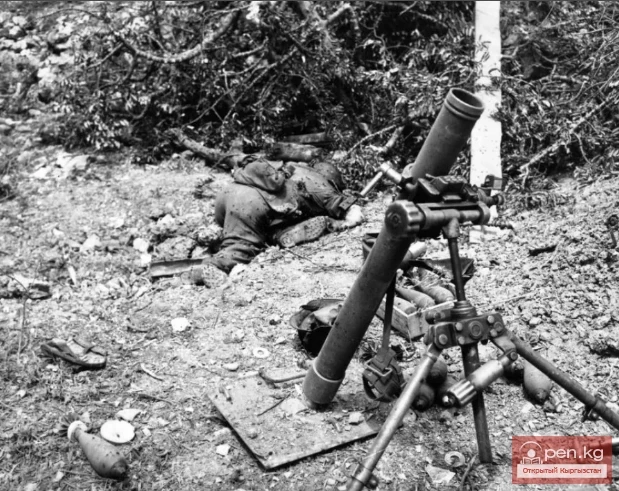
For their unparalleled courage and bravery displayed in these fierce battles on the approaches to the Dnieper, during its crossing, and in expanding the bridgehead on the western bank, many cavalry fighters of the 3rd saber squadron of the 62nd Guards Cavalry Regiment were awarded orders and medals of the USSR. And their commander — Guards Lieutenant Tikhonov — was nominated for the highest award of the Motherland. “For his displayed heroism and courage, for his skillful leadership of the squadron in difficult unequal battles, Comrade Tikhonov is worthy of the title of Hero of the Soviet Union with the award of the Order of Lenin and the Medal of Gold Star,” — thus stated in the award sheet the commander of the 62nd Guards Cavalry Regiment of the 16th Guards Chernigov Cavalry Division, Guards Major Markoryan.
In the battle for the Belarusian city of Mozyr on February 13, 1944, Hero of the Soviet Union Guards Senior Lieutenant Grigory Matveevich Tikhonov fell in battle.
V. KIRYANOV
